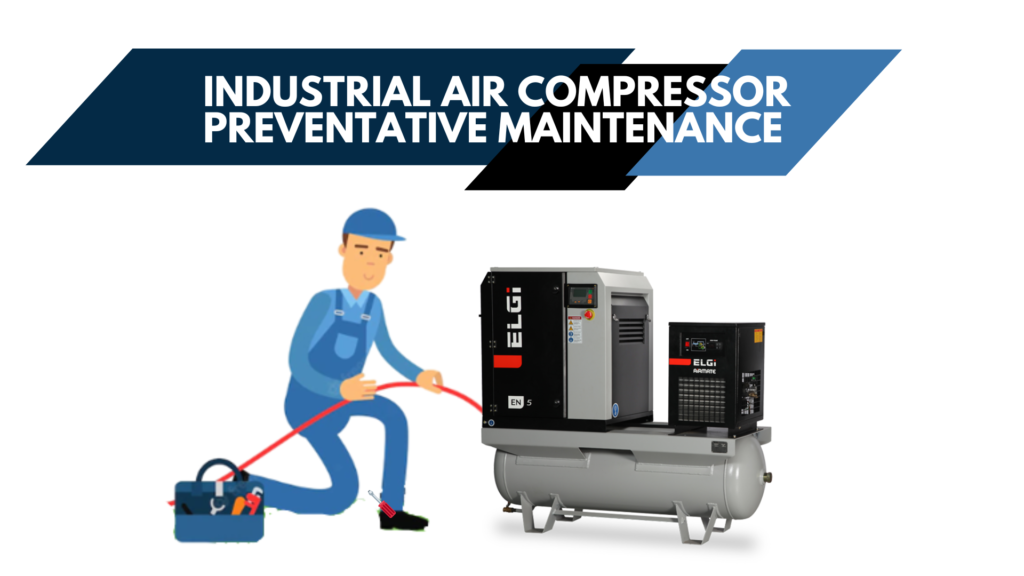
Maintenance of equipment is necessary to ensure longevity and energy efficiency. This applies to air compressors that are used daily in an industrial setting. In this blog, we take you through some of the pressing issues with regard to the preventative maintenance of your industrial compressors.
Difference between preventative and standard air compressor maintenance
In an industrial setting, it is necessary to have an inspection regime in place to make sure your compressor and its allied equipment are functioning at the optimum level. This set of checklists or procedures is known as standard maintenance.
Preventative maintenance on the other hand is all about finding and arresting mechanical issues before they spread and cause costly downtime. The schedule of preventative maintenance varies from component to component. While some may require daily inspections, others can be checked once or twice a year.
Benefits of preventative maintenance for industrial air compressors
- Avoids downtime: Downtime for any production facility can be costly for business and with preventative maintenance, this can be avoided to a great extent.
- Saves costs: Sudden breakdown of systems can cost more as compared to regular preventive checks.
- Ensures energy efficiency: Preventative maintenance brings to the surface any gaps or issues behind the sub-optimal level performance of the air compressor.
- Increases longevity: With regular check-ups, fine-tuning, and cleanups, an air compressor system can be kept in good health. This helps avoid fatal faults or wear and tear in the system and increases its life span.
Recommended preventative maintenance checks
- Oil filter: Oil must not be allowed to leave with the compressed air as it can corrupt the surface if the compressor is being used for spray painting. Oil filters must be checked weekly and replaced after every 4000-8000 hours of use.
- Lubrication: Change the lubricant every 3 to 6 months to ensure the health of the compressor. Non-lubricated surfaces of the system could cause serious corrosion of moving parts.
- Air filter: Check, clean, and replace the air filter regularly. You do not want unclean air or air laden with particulates to come out of the compressor and hit a surface being spray-painted or cleaned with the compressor.
- Motor bearings: Make sure the bearings are sufficiently lubricated. Carry out regular inspections and check the bearings after every 4000 hours. Lack of lubrication can cause the bearings to get stuck in place.
- Intake vents: The air entering the vents can become dirty if the intake vents are lined with dirt, dust, and grime. The same air will then be released in compressed form.
- Belts: Belts must remain firm to ensure the proper functioning of the pulleys and connected parts. Replace the belts before they lose their tension or break down in the middle of a task.
Which maintenance checks should a technician perform
While some maintenance tasks can be performed in-house by your own team, for others, it is best you consult the compressor technicians. Some of these situations are
- Replacement of motor
- Relocation of heavy compressors
- Safety shutdown instructions
- In case of a mechanical breakdown
For operation and maintenance tasks of your air compressors by our skilled and qualified technicians, get in touch with us at 022 43436655 or email us at marketing@vemc.co.in. VEMC is the authorised Elgi air compressor dealer with an experience of over 72 years.

